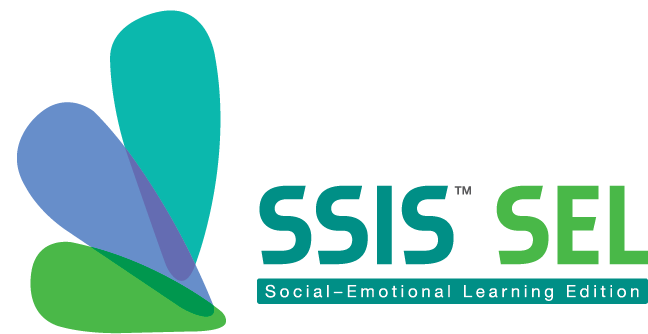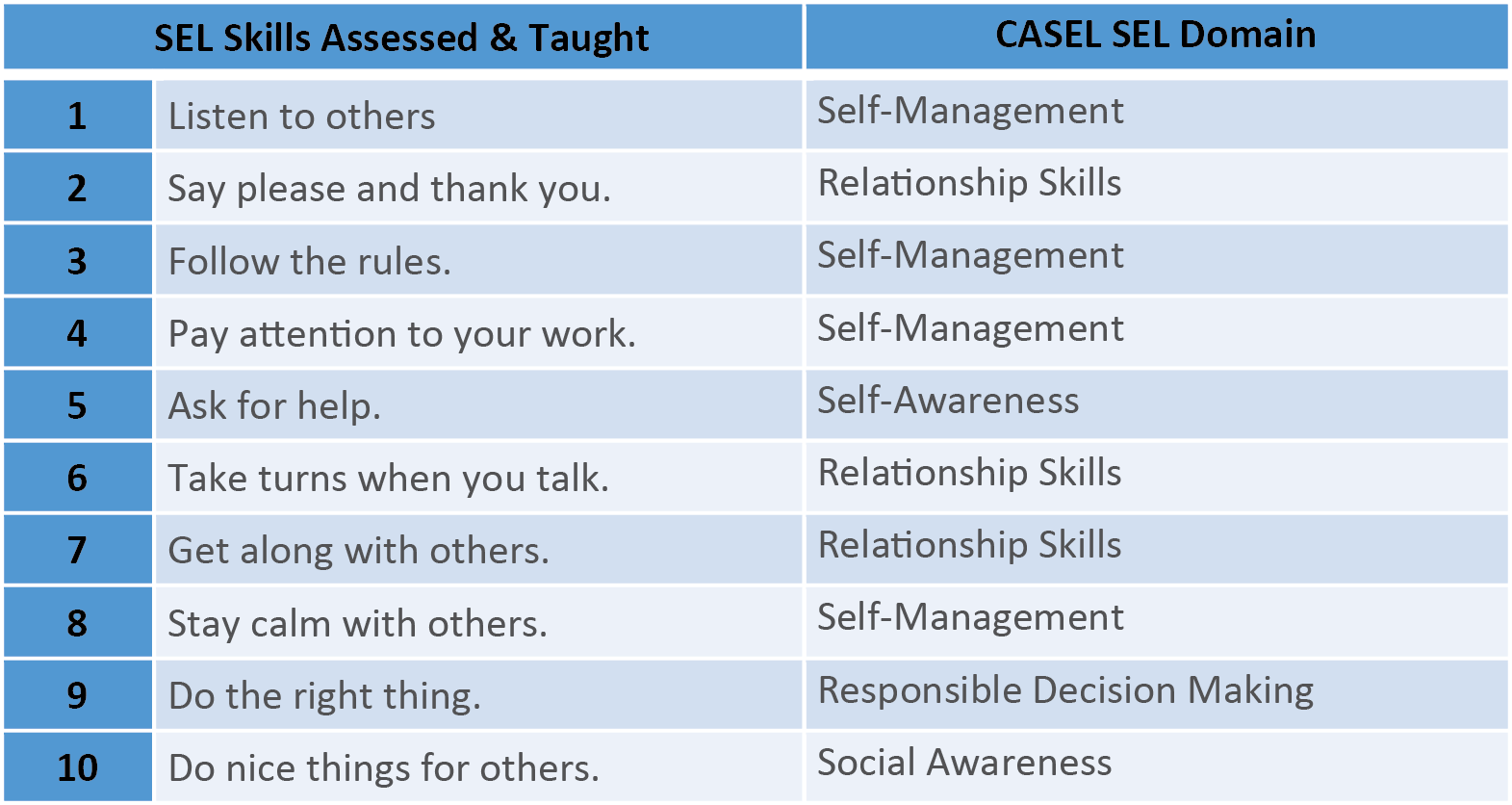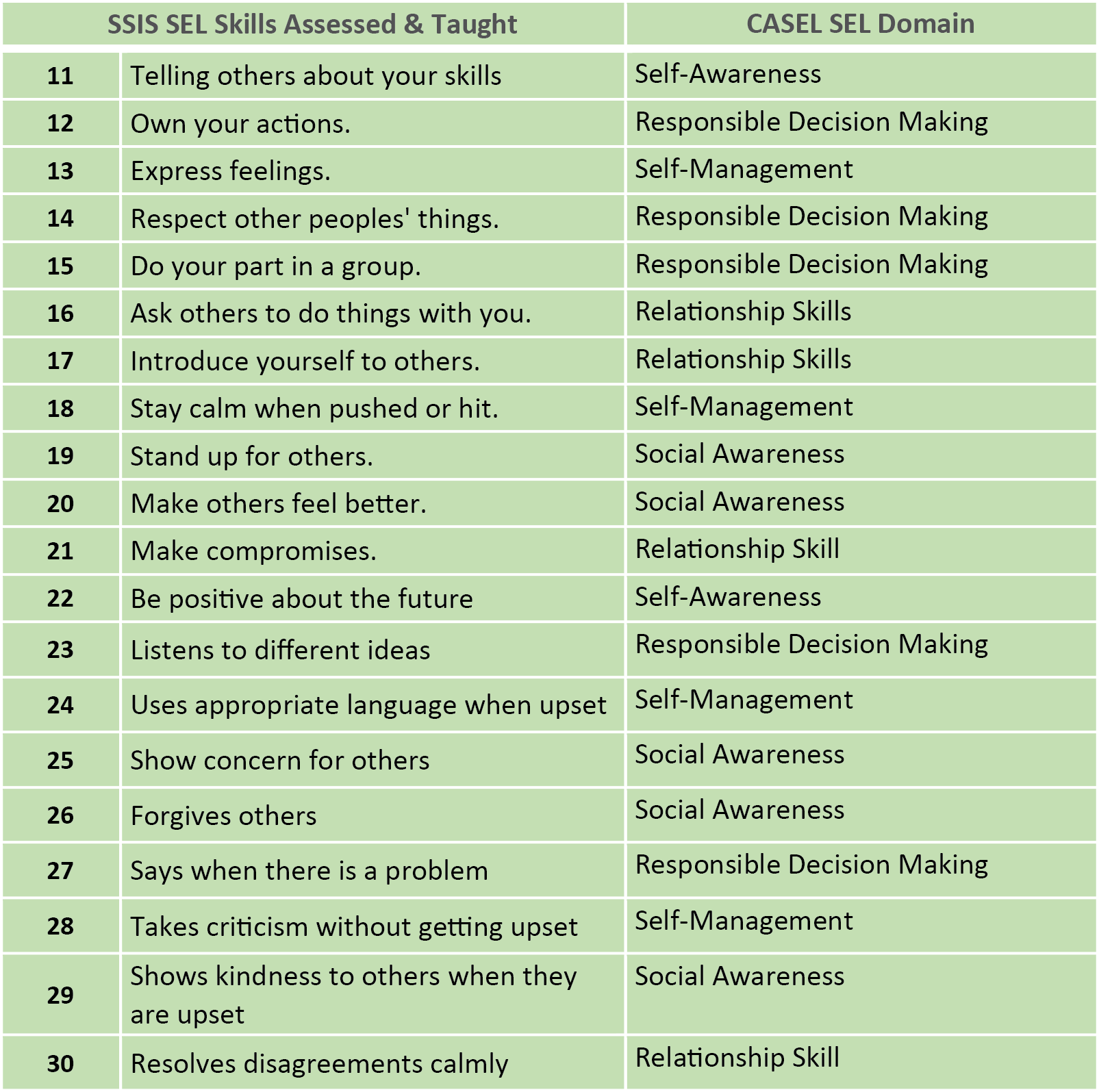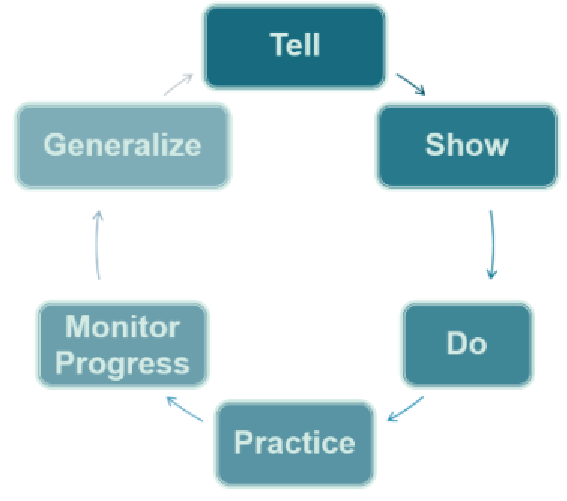Brief #12 – Improving Children’s Social Emotional Skills
Intervention Simplified
Improving Children’s Social Emotional Skills
Using the SSIS SEL Classwide Intervention Program (CIP)
Stephen N. Elliott, PhD

Social emotional skills are an important part of the social and academic lives of children and youth. Teaching children fundamental social emotional learning skills can be time efficient and highly effective when scientifically designed and content aligned programs are used. The SSIS SEL Edition Classwide Intervention Program (SSIS SEL CIP) is just such a program. The SSIS SEL CIP is designed to be used by educators to develop and improve up to 30 social–emotional skills for children ages 4 to 18 years. Specifically, this intervention program provides interventionists with an efficient and effective way to teach children social emotional learning skills that represent five CASEL core competencies (CASEL, 2012). These competencies are defined as self-awareness (recognizing one’s emotions, values, and the ability to assess one’s strengths and weaknesses); self-management (the ability to handle one’s own emotions and behavior so that they do not interfere with accomplishing social tasks); social awareness (demonstrating understanding and empathy for others’ feelings); relationship skills (establishing and maintaining healthy interpersonal relationships in groups and dealing effectively with conflict); and responsible decision making (making ethical and constructive choices about one’s personal and interpersonal behaviors). Thus, the SSIS SEL CIP is fully content aligned with the CASEL SEL framework.
The SSIS SEL Classwide Intervention Program (CIP) includes 30 SEL Skill Units. These skill units are conceptualized as 10 Core SEL skills and 20 Advanced SEL skills. The Core 10 Skills are listed below with the CASEL SEL competency domain they each represent.

The Advanced 20 SEL skills continue to consistently align with one of the five CASEL competencies.


To teach each of the 30 skills, the SSIS SEL Edition CIP uses a six-phase intervention process. These steps are Tell, Show, Do, Practice, Monitor Progress, and Generalize. DiPerna and colleagues (2015, 2016, 2017), in a randomized control trial in elementary schools funded by the U.S. Department of Education, provided strong evidence to support that efficacy of the SSIS SEL Edition CIP six-phase program. Specifically, these researchers reported that using the six-phase process resulted in students (1) learning social–emotional skills and performing these desired behaviors more frequently, (2) concurrently reducing the frequency of many common externalizing problem behaviors, and (3) increasing academic engagement and in many cases their achievement test scores. This research documenting the triple positive impact of the SSIS SEL Edition CIP resulted in CASEL designating it “a SELect program for elementary students” (https://casel.org/guideprogramssocial-skills/).
Most users select 10 Skill Units to teach over a 12-week period. Each Skill Unit is comprised of 3 lessons, each of which is 25 to 30 minutes long. So this means to teach a 10-Skill Unit program requires 900 minutes, which translates to 1.5% of the allocated instructional time in most U.S. schools. To learn to implement the CIP requires most users 5 to 6 hours, which includes reading instructive chapters, watching a video, and implementing the first entire Skill Unit. Thus, to learn how to implement and then implement 10 Skill Units to a class requires less than 21 hours or 2% of one’s entire school year.
In summary, the SSIS SEL CIP is a CASEL competency aligned, time efficient, and evidence-based program proven effective for students ages 4 to 14. The CIP can be implemented with all students in a universal intervention program or with small groups of students receiving Tier 2 or Tier 3 focused interventions and is supported by a family of SSIS SEL assessments including the SSIS Brief SEL Scales and the SSIS Screening and Progress Monitoring Scales.
References
Collaborative for Academic, Social, and Emotional Learning. (2012). Effective social and emotional learning programs. Retrieved from https://casel.org/wp-content/uploads/2016/01/2013-casel-guide-1.pdf
DiPerna, J. C., Lei, P., Bellinger, J., & Cheng, W. (2015). Efficacy of the Social Skills Improvement System Classwide Intervention Program (SSIS-CIP) primary version. School Psychology Quarterly, 30(1), 123–141. doi:10.1037/spq0000079
DiPerna, J. C., Lei, P., Bellinger, J., & Cheng, W. (2016). Effects of a universal positive classroom behavior program on student learning. Psychology in the Schools, 53(2), 189–203. doi:10.1002/pits.21891
DiPerna, J. C., Lei, P., Cheng, W., Hart, S. C., & Bellinger, J. (2017). A cluster randomized trial of the Social Skills Improvement System-Classwide Intervention Program (SSIS-CIP) in first grade. Journal of Educational Psychology, 110(1), 1–16. doi:10.1037/edu0000191
Elliott, S.N., & Gresham, F.M. (2017). SSIS SEL Edition Classwide Intervention Program manual. Bloomington, MN: NCS Pearson.
Stephen N. Elliott, PhD, is the Mickelson Foundation Professor at Arizona State University and the co-author of the SSIS SEL Edition Assessments and Classwide Intervention Program.
